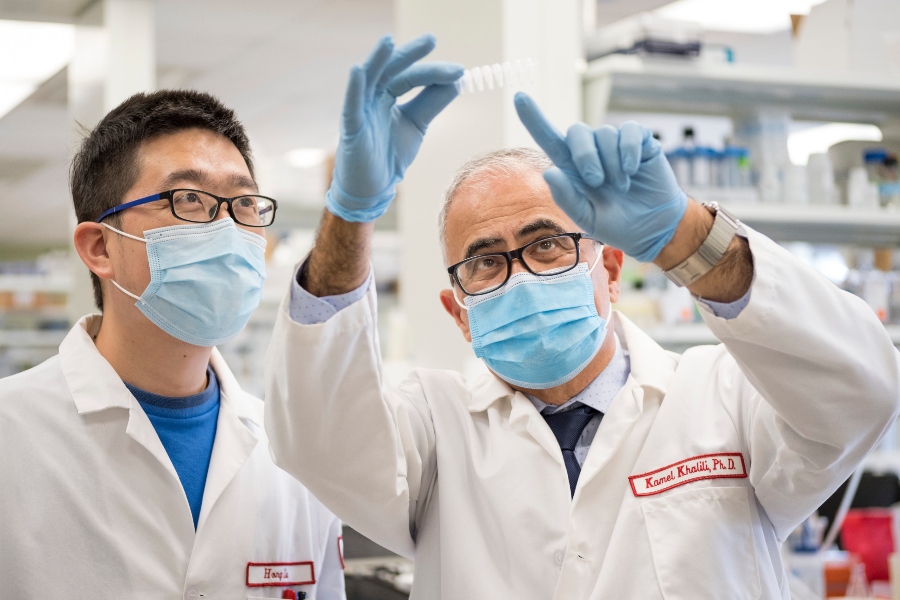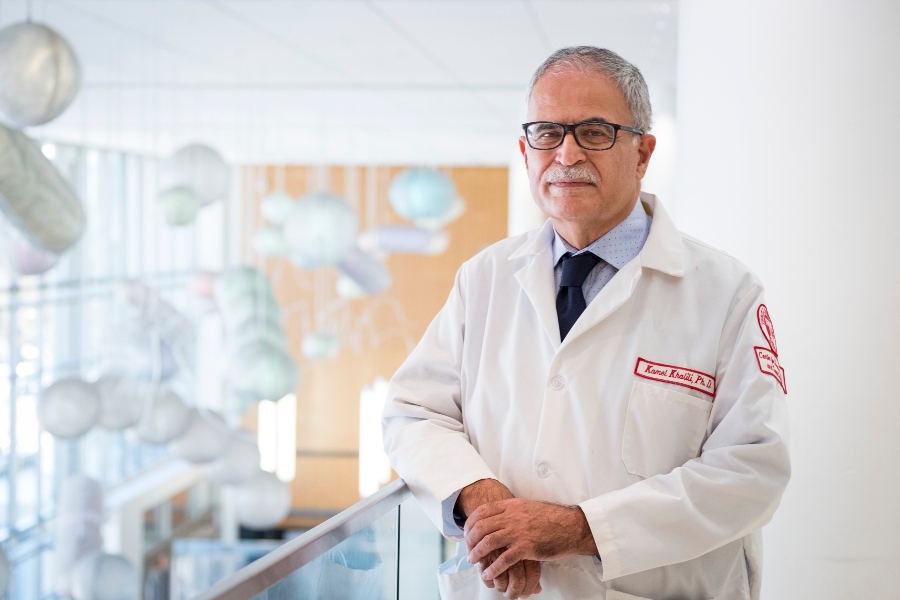Excision BioTherapeutics Has Secured $60M to Proceed with HIV Clinical Trial
The Philly-based biotech company will begin human testing of EBT-101, a CRISPR-based gene editing construct developed at Temple’s Lewis Katz School of Medicine.

Photograph courtesy Excision BioTherapeutics
Forty years after the start of the HIV/AIDS epidemic in the United States, approximately 1.2 million Americans live with diagnosed HIV — 19,000 of whom are Philadelphia residents. Currently, there is no cure or vaccine for HIV or AIDS, so patients are limited to managing the virus through antiretroviral therapy (ART), which involves taking multiple medicines every day for life.
Though ART helps mitigate the growth of HIV, it does not eliminate it completely, leaving a person at risk of developing AIDS if they discontinue their treatment regimen. This is why Kamel Khalili, the Laura H. Carnell professor and chair of the department of neuroscience, director of the Center for Neurovirology, and director of the Comprehensive NeuroAIDS Center at the Lewis Katz School of Medicine at Temple University, has been hard at work to find a way to eliminate HIV using CRISPR-based gene editing technology. In 2019, Khalili and his team of Temple researchers successfully removed the HIV-1 genome in mice, and last year, edited the genome of simian immunodeficiency virus (SIV), a virus closely related to HIV, in non-human primates.

Temple’s Kamel Khalili is working to eliminate HIV. Photograph courtesy Excision BioTherapeutics
Temple is now in partnership with Philly-based biotech company, Excision BioTherapeutics, which Khalili co-founded to help fund clinical trials and commercialize treatments. Just two weeks ago, Excision secured $60 million in investor financing, enabling them to begin Phase 1/2 of clinical trials of their CRISPR-based gene editing constructs — specifically, their lead candidate EBT-101 — on patients living with chronic HIV infections.
According to Excision’s CEO, Daniel Dornbusch, this phase intends to treat individuals living with chronic HIV who are well-controlled on ART. The trial participants will receive a single IV dose of EBT-101 over one to two hours, and will remain on ART for three months to measure for safety and evidence of HIV excision. After three months, participants will stop ART, and treating physicians will monitor for relapse or rebound. Excision will also be testing multiple dose levels for both safety and efficacy.
Dornbusch says the primary endpoint of the trial will be to demonstrate safety at all dose levels, with a secondary objective of determining if subjects can remain HIV negative, as measured by RNA tests, after stopping ART. “The goal, of course, is to find the first therapeutic to create functional cures for HIV,” he says. “The term ‘functional cure’ is an important distinction, as there will be no way to determine if EBT-101 will remove every viral genome from an individual, which is called a ‘sterilizing cure.’ However, sterilizing cures are not necessary, as the goal of the therapy will be for individuals to remain HIV negative by RNA testing, maintain normal levels of immune cells, and cease taking antiretroviral treatment — achieving a functional cure.”
If the current trial on EBT-101’s efficacy in HIV elimination goes well, Excision plans to work with the FDA to develop the essential next steps to move the program toward regulatory approval, so that the treatment is widely available and accessible to those living with HIV. Because Excision works to develop curative therapies for a variety of viral infectious diseases, the recently-secured funding will also allow Temple scientists to research CRISPR technology on other diseases including Herpes Simplex Virus and Hepatitis B.


